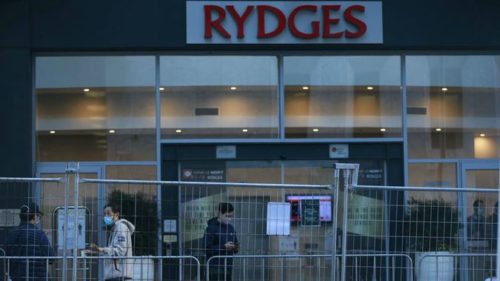
The new system requiting returnees to New Zealand to have booked a place in a managed isolation facility in advance of boarding a flight home came into force at midnight last night, following a one-month notice of the change taking effect.
The one month grace period has now expired and from 12am Tuesday November 3 (NZT) – midnight Monday – travellers arriving in New Zealand will be legally required to have a voucher confirming that they have secured their place in a managed isolation facility, before boarding their aircraft.
Air Commodore Darryn Webb, Head of Managed Isolation and Quarantine, said travellers who arrive at the airport without their voucher will not be permitted to board their aircraft, unless they meet the very restrictive emergency allocation criteria from the Managed Isolation Allocation System.
“The last thing we want to see is people turned away at airports. To avoid this our message to people is ‘no voucher – no fly’. If you don’t have a voucher, do not go to the airport because you will not be allowed to board a plane to New Zealand without one.
“New Zealanders are playing their part to stop the spread of Covid-19 in our communities. We now ask those travelling here to do their part by using the Managed Isolation Allocation System (MIAS) to book a voucher and secure their place in a managed isolation facility. Almost 30,000 people have already done just that over the next three months.
“This system is very straight forward and helps us manage the timing of people entering New Zealand so we can guarantee their place in a managed isolation facility, which is necessary to keep them and all New Zealanders safe. All people need to do is visit the website to check availability and secure their place in managed isolation, before booking flights
“With the Christmas holidays fast approaching, we’re now heading into a period of peak demand where managed isolation facilities will be operating at or near capacity. We’re already starting to see some periods where we’re booked solid. This is a good thing – it shows that the system is operating effectively and that we’re managing the safe return of New Zealanders. It also shows there might not be space for people just jumping on a plane and hoping to come home.
“For example, we currently have a short-term spike in arrival numbers from November 1 – 12, and November 23 – December 12. The MIAS is now fully booked during this period, which means there is no capacity for additional bookings in managed isolation facilities.
“The reality is that there is a finite number of rooms available. New Zealanders can still come home but anyone wanting to come home in the lead up to Christmas holiday period needs to make their travel plans early, or they may not be able to come home on their preferred dates.
“Because of Covid, this Christmas is very different to the last. We’re asking people to be flexible and if there are no available places in managed isolation on their preferred date, to check and see if there are any places available on another nearby date.”
An extensive awareness campaign has been underway for the past month.
“This has resulted in people from 100 different countries accessing our Managed Isolation Allocation System website. Since the campaign started on September 25 around 95 per cent of passengers arriving at airports have had a voucher. Given this was a transition period, it is fantastic to see so many early adopters using the new system,” Webb said.
“The new voucher system not only provides advanced notice of who is arriving in the country, but will also allow our facilities to be better prepared to support any additional needs they might have.
“Over the past six months, there has been more than 65,000 people flying into the country and completing their managed isolation. Planning ahead with a voucher system will streamline the processes currently in place for allocating people to MIQ, while helping provide a better experience for travellers at their facility.
“We have had an enormous amount of co-operation from a range of parties to put this system in place, including airline carriers, facility, airport and border staff, and I would like to thank them all.”
Visit the MIQ website for more information.










